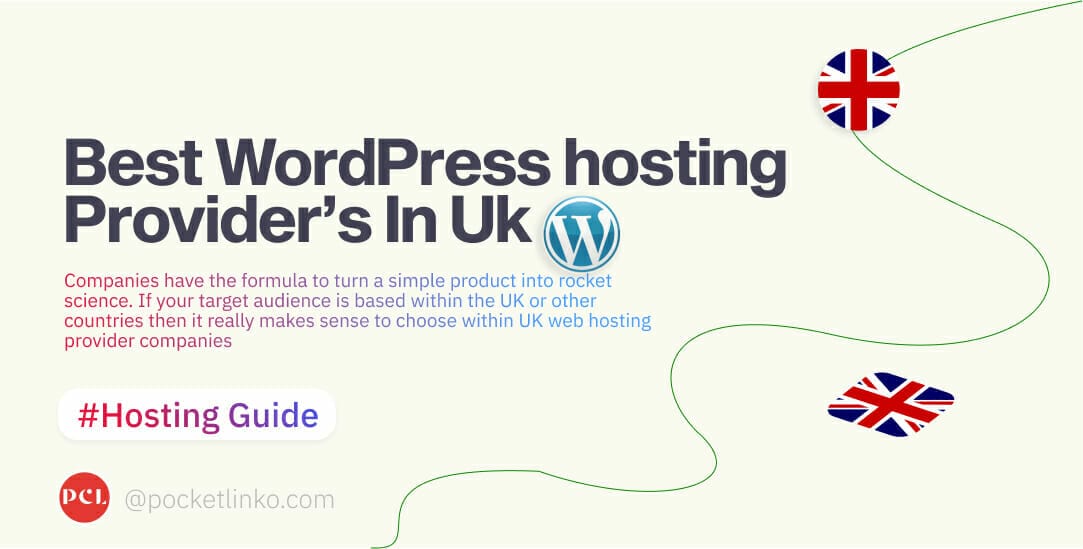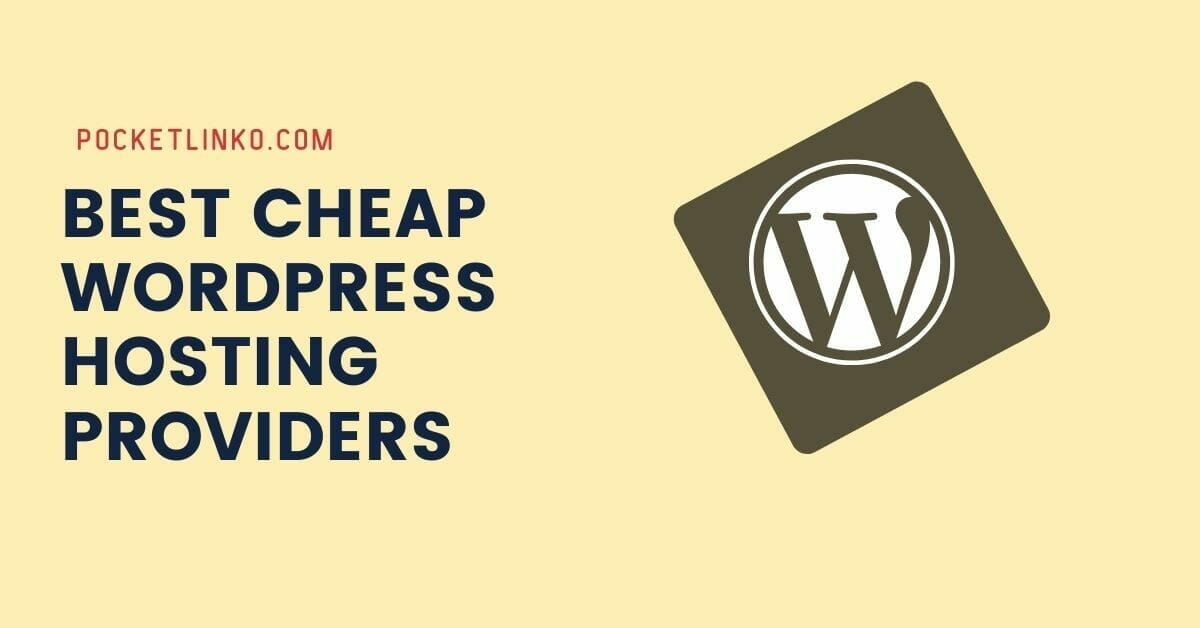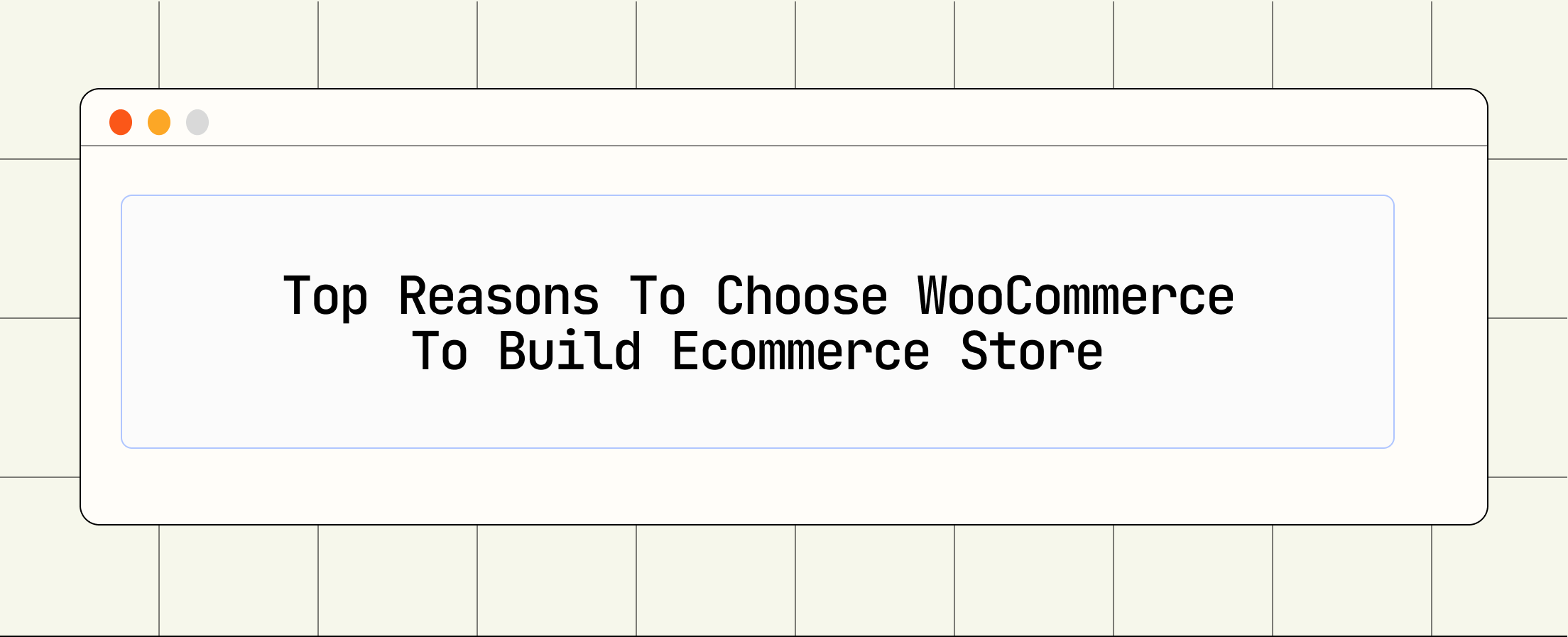Hosting an online website online can be one of the most exciting times for a business and it seems that more people want to create their own website, but there is more to setting up a website than just having the idea. Here is a guide to choosing a web hosting provider with proper planning that fits under your budget.
Web hosting is the backbone of any successful online business. If your website gets hacked or your website performance is slow, your business can go downhill.
It is important to choose a right web host for your website. It determines how fast your site loads and how secure it is. There are many factors are important to choose a web host. This blog will help you to find out the right web host.
When choosing a web host for your business or organization, you want to find one that has a good track record and can provide full support for the applications you require. It’s important to do research into the services they have to offer and what sort of reviews are out there about them before committing to them.
Here at PCL, we have an abundance of experience when it comes to web hosting. We know what goes into starting off a site and can make sure you get the best website software for your business,
With over more than 100+ web hosting articles and guides written so faron our website, we can totally help you to guide find the best web-hosting company provider.
The Best Web Hosting Providers for 2024

1. dreamHost

Best overall Hosting
Dreamhost is a reliable provider of web hosting and domain registration services, as well as other web services. If you have never used a hosting service before, Dreamhost is an excellent brand to start with because it features exceptional customer support and reasonable terms and conditions.
Its website also features detailed information on package plans so that you can be sure that you are getting exactly what you want from the get-go.
With its reliable service, one can afford to be confident that your business’s website will still be accessible despite most common issues like outages or power failures.
2. BlueHost

Best WordPress recommended hosting
Bluehost provides a suite of excellent services, including reliable web hosting and fully managed WordPress hosting. Their hosting also contains useful add-ons for e-commerce, including WooCommerce.
Bluehost services include reliable web hosting and fully managed WordPress hosting to power your e-commerce website on WooCommerce. Their hosting also come with helpful addons for e-commerce.
Bluehost is a great option for mid-level to mature companies due to its powerful functionality, fast load times, and dependable customer support. You’re better off if you are looking for something simple or if you are just starting out.
3. rocket net

Best Hosting For Performance
If you are looking for managed WordPress hosting with speed, ease of use, and cutting edge optimization, Rocket.net is an excellent choice. Packed with a fast control panel and built-in security features, Rocket.net will give your website the instant boost it needs to be successful in today’s digital climate.
Rocket.net strives to create the ultimate beginner WordPress hosting platform, providing ease of use with premium offerings at competitive prices. Rocket.net has recently launched their new highly affordable all-inclusive plan for a limited time only!
Drive more traffic to your site today by moving away from low tier shared hosting services and joining the growing number of individuals and businesses who have already made the switch!
4. Hostinger

Best Affordable Hosting Provider
Hostinger is an oustanding option for hosting users who are on a tight budget, especially those looking for managed WordPress hosting plans. The entry-level packages at this provider feature SSD storage, free SSL certificates and updates for auto-updates for WordPress.
The lowest-level shared hosting plan features a cPanel control panel with easy installation tools, built-in statistics and an extra fast MySQL database.
Additional features can be added through the “Web Apps” tab in cPanel to give your site more functionality such as a full VPS hosting or Email Marketing software that can help grow your business through direct campaigns.
What Does a Web Hosting Provider Do For You?
Web hosting is a service that allows organizations and individuals to post a website or web page onto the Internet. A web host, or web hosting service provider, is a business that provides the technologies and services needed for the website or webpage to be viewed in the Internet.
Websites are hosted, or stored, on special computers called servers. When Internet users want to view your website, all they need to do is type your website address or domain into their browser.
Their computer will then connect to your server and your webpages will be delivered to them through the browser.
Most people don’t have their own servers, so they need to rent space from a web hosting service. There are different types of web hosting services, but the most common one is shared web hosting. This is where your website is hosted on the same server as many other websites.
The advantage of this is that it is much cheaper than having your own server. The downside is that if another website on the same server gets a lot of traffic, it can slow down your website.
The other type of web hosting is dedicated web hosting. This is where your website is the only website on the server. This means that you will have much more control over the server and it will be much faster. However, it is also much more expensive.
You need web hosting because without it, you will not be able to have a website on the Internet. Web hosting services provide you with the technology and services that you need in order for your website to be viewed by others.
In this section, we’ll explore all of the services a web host provides offers.
a). It Host Your Domain
Your site’s domain name is a huge part of your online identity. It’s the first thing a viewer sees whenever they type in its URL or they see it shared in an advertisement or by word of mouth.
This is why it’s important to make sure that you treat your domain name as seriously as you would treat any other representation of your brand.

Luckily, most web hosting companies provide the service of helping you register and maintain the name for your website. If they use the popular site management platform called cPanel, you can easily manage yours through your domain control panel.
b). it Provides Server to your website
A server is more important than the domain name you choose. The server is a computer that will “serve” your site to the public via the internet so that people can access it easily and instantly. Choosing a reliable host is essential.

Even more important than your domain is the server that sends your content out to the general public. If you have a website, your content is hosted on the server.
The most popular servers used to host sites are Windows Server and Apache HTTP Server. Your computer has to be connected to high-speed internet for it to work properly.
c.) It Provides Storage
WordPress is an application that you install on a web server, and it’s made up of several scripts, all written in different languages. This collection of scripts does not rely on any one language, but most often employs PHP.
On your website you have the ability to write pages which are called “files”. These files can be formatted in different languages including HTML, PHP, Python, Ruby, Ruby on Rails, JavaScript and more.
If you are thinking about hosting multimedia content (images, audio or video), it’s crucial to make sure that you have enough hard drive space on your server.
All files are stored with the hosting provider you gain access to through your web host so that its data can be served to the public. Backup services include copies of the files in a separate location, separate from where your public store is located.
How to choose a web hosting provider?
There are so many things to consider when choosing a web hosting provider. Some will be more important to you than to others.
Below is an outline of what you need to know when considering various aspects in your search for a reliable web hosting provider as well as ways in which you can evaluate each one.
1. Evaluate the number of traffic limitations
On the other hand, we’ll be completely honest: The selection of hosting services is huge and that can make choosing one a bit intimidating.
We recommend thoroughly investigating your prospective hosting service to understand what level of traffic they expect from their clients and if there are any bandwidth or account limits in place.
Picking a host that’s sufficient for your needs is critical, but almost as important is avoiding one that will be unable to keep up with the rising traffic you want for your site and brand.
We recommend some research to find out if the provider you are considering has limits on server space, database connections or overall bandwidth for instance. As soon as you know how much traffic to expect it becomes easier to make informed choices about hosting.
The point here is that it’s essential to be aware of what type of traffic your website receives. You might have a lot of “players” who look for specific products and purchase them regularly.
Maybe the majority of visits aren’t made by players but instead just happen to find your site one day, out of chance, but still prove to be loyal customers if not repeat ones. It all depends on how many potential customers each visitor could potentially represent – which also has an impact on your bottom line.
2. SSL certificate support
Secure Sockets Layer (SSL) and its replacement Transport Layer Security (TLS) help to keep sensitive data safe from being accessed by people who don’t want it to be.
If you run a business, chances are that you have products and services available online, which means you must employ an SSL certificate for man-in-the-middle attacks or unauthorized access. But even if this is not the case, why not use SSL certificates anyway?
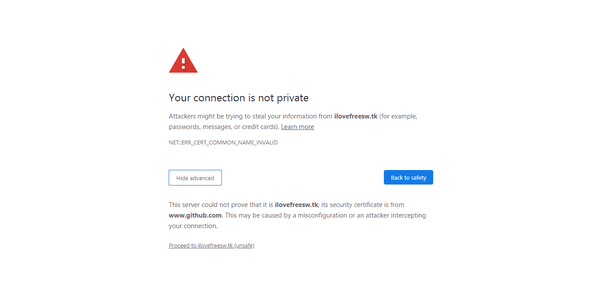
They are free, simple to install on your website, will improve your overall security greatly, and will greatly improve the Google ranking of your site as well.
Google recommends every website now get an SSL certificate to provide a level of reassurance to your visitors and protect sensitive data such as passwords and credit card details.
Most web hosting companies will provide an SSL certificate at no cost to you, take a look at some of the best SSL hosting provider that offfers Secure Sockets Layer for free without any cost and risk.
3. Server Resources
When you see the specifications for a web host, the first thing you probably look at is storage and bandwidth, often referred to as “the number of visits.”
Also, make sure to check the small print and customer reviews for web hosts who claim to have “unlimited” bandwidth and storage. While some truly strive to deliver their best and offer you an unlimited service, others will occasionally restrict your bandwidth or even shut down your site if you happen to pass a certain threshold.
4. How many Professional Emails Will you need?
You’ve already had your email handled efficiently through a trusted service, Google for example. That’s why email is often an afterthought when it comes to your business and website.If you want your email to compliment your business’ branding and how it reaches prospect clients and customers,
However, then you need a web host for that service. Instead of using the standard type of email address with the .com or .org suffixes and the associated difficulties tied to creating a hosting account by oneself, exploring your email hosting options is highly recommended.
Several web hosting providers offer personalized emails @ (at) your domain name. However, if your company has several employees, you will want to provide email addresses for each one as well as a few generic ones which is what we’ve done with this website to allow us to accept contact from both customers and suppliers.
To begin with, the Pay-As-You-Go package provides you with a few email accounts. But if you need more than 2 or 3 for your account, then be sure to check out a plan that offers unlimited email accounts.
5. How Much Bandwidth Do You Need?
Picking a web hosting plan is an important decision to make when first starting up a new website. Take into account your estimated monthly bandwidth needs,
Especially if you plan on receiving visits from hundreds of thousands of people. However, if you’re just going to be getting a few thousand visitors per month you can afford cheaper plans that have lower bandwidth caps.
It is important to understand your bandwidth needs before you get to the point where they become a problem. Bandwidth requirements can vary depending on what type of site you are hosting, but it usually isn’t something that should be ignored or overlooked.
6. Investigate the Host’s Website Backup Options
There are many ways in which a WordPress website can be backed up, including the use of WordPress plugin tools.
There are many excellent plugins that can perform backup functions natively using FTP or other remote means to transfer files. However, taking backups manually via FTP is quite time-consuming, and generally not the most efficient way to keep your site safe!
One of the most well-known WordPress backup plugins is Updraftplus. Over two million users have downloaded this impressive plugin and it has been given over 3,000 five-star reviews.
With it, you will be able to backup your website quickly and easily if you ever need access to that data at a later date! Also, that way you’ll know exactly where your backups are located in case you have any security concerns about them being stored on your local server.
What to Look for in a Web Host
Below are our few guidlines that willl help you determine in choosting the best professional website hosting provider when making a decision to choose for a perfect host.
1. CDN
A content delivery network (CDN) is a system of distributed servers that deliver web content to users based on their geographic location. The main purpose of a CDN is to improve the performance of a website by reducing the distance between the server and the user.
There are several benefits of using a CDN, including improved website performance, reduced bandwidth costs, and increased security. CDNs can also help to improve the availability of a website by providing a backup server in case the primary server goes down.
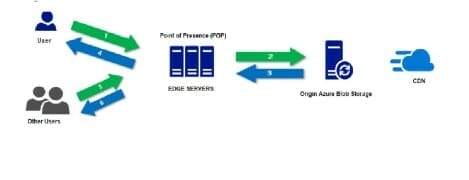
Overall, CDNs can provide many benefits to both website owners and users. Website owners can benefit from improved performance and reduced costs, while users can enjoy faster loading times and increased availability.
So it’s definitely worth letting a web host or developer know in advance before your website goes live if you have any specific requirements concerning the implementation of any third party offerings like whether or not a CDN should be used to enhance download performance.
2. Cancellation Policy
You never know what might happen once you start building your website. That’s why it’s crucial to thoroughly review your potential web host’s refund policy. If you’re not happy with the service provided, or change your mind about the site altogether, it’s important to have options.
One can never be sure what might happen when building a website. However, it is always wise to thoroughly review your potential web host’s refund policy. If you are not happy with your host or change your mind about the site as a whole, there must be options provided for you that will allow you to secure a refund.
When it comes to online businesses, the easiest way to make sure that you always get your money’s worth and can get a refund if necessary is to read through their terms of service and other documents. These might include a guarantee for uptime, which we discussed earlier in this book but also terms deals with privacy and even how business is transacted.
Several providers offer discounts for those who pay up front. But do be aware that you are committing to a certain timeframe with this option, and should you choose to leave your service provider at any time, there most likely would be a fee attached. If unsure, it might benefit you to consider a different provider with a more lenient cancellation policy.
3. Understanding About Unlimited Offers
Although unlimited traffic is a great option, there are times when it’s a better idea to do your research before you decide on which hosting plan best suits your needs. Remember that fine print we mentioned earlier? Well, sometimes “unlimited” plans still have some restrictions that you should be familiar with.
Some web hosts may offer an “unlimited hosting plans” amount of bandwidth. However, you must be aware that this isn’t unlimited in the true sense. While most plans won’t technically specify a limit as to how much data transfer you can utilize per month,
Many companies will throttle your sites if you use too much traffic, meaning certain files may take far longer to download than others. This could be problematic if you have visitors who will not wait around for pages to load up and could result in an unpleasant experience overall.
4. Verify the differences in Signup Prices vs. Advertised price
To make sure you’ve picked out an affordable hosting plan that also fits your needs as a growing company, focus on comparing vendor specifics such as space limitation and bandwidth limits. A provision for file uploads is another important feature to look for when getting started with your own web company.
These and other factors should be taken into consideration so that you won’t need to switch hosts in the middle of growth season or get stuck upgrading plans each month.
Many hosts will offer an extremely attractive introductory offer (often less than $5 a month). While you may want to jump on that right away, you need to pay attention to what their long-term prices will be.
It’s important to pay attention to what type of discount plan you are signing up for because it is common to get a great deal on your hosting fees in the beginning only to later have them raised unexpectedly. For example, it’s not uncommon for initial discounts to quietly give way to higher costs after the first few months or year of service.
After you sign up for web hosting, you might discover that prices have risen. It’s important to read the fine print, as switching hosts may come with significant penalties. For this reason, it is important to be transparent about costs in your budget and secure the funds required to pay current rates before signing a contract.
As an entrepreneur, it’s important to always be aware of what is going on with your business. The last thing you want is for your web hosting costs to suddenly skyrocket and leave you scrambling for a way to pay for them. Make sure that your business plan includes money set aside specifically for these kinds of unexpected expenses!
5. Support Services
As well as looking for a web host with excellent customer support, it’s important to consider whether they have active support services to offer.
Along with site backups and restoration services, it’s not just the value of reliable technical support that matters. If you have in-house programmers and tech staff, you might not need this level of service.
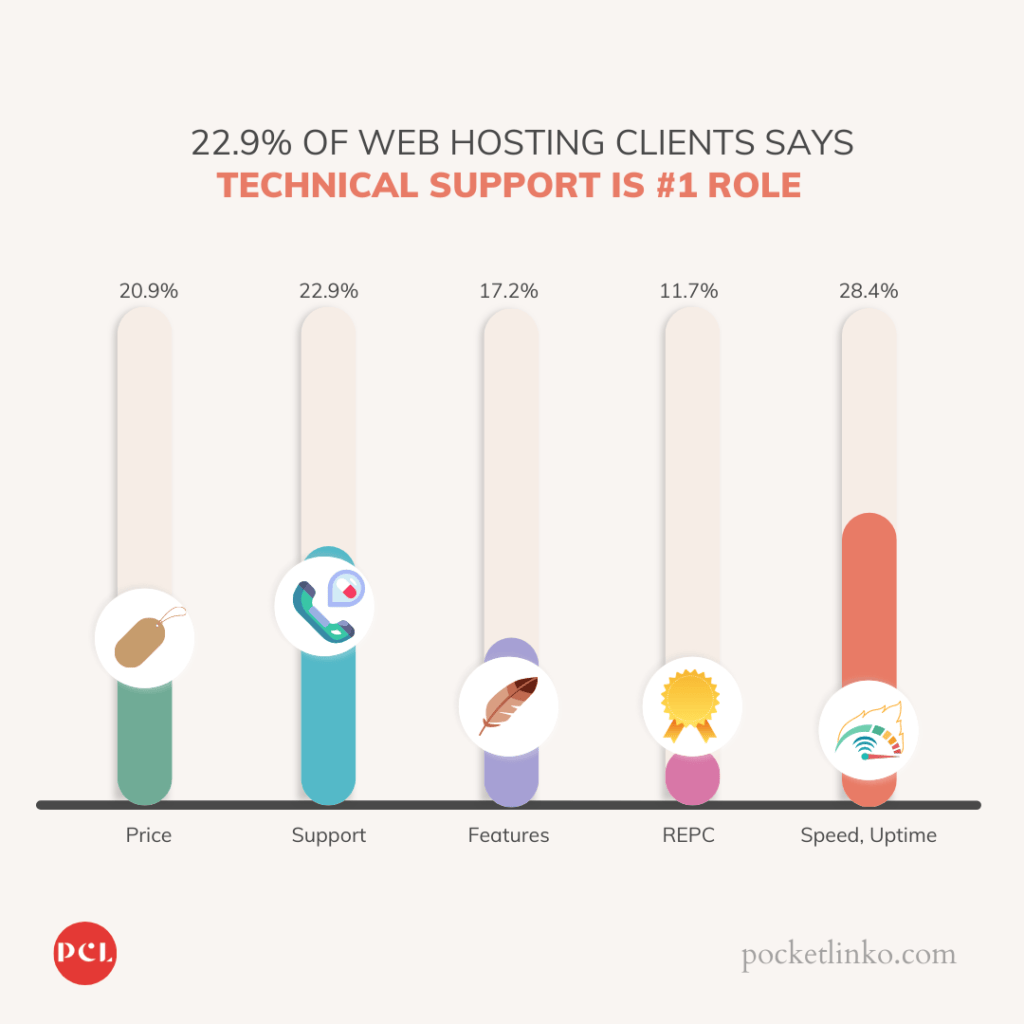
You may find yourself needing technical support. However, you should be aware of the level of support that your host provider provides. Most will provide basic account support, but it might be difficult if you want someone to help code your site, for instance (most will not offer this).
A hosting provider’s support options are not always the same from one plan to the next. Lower-tier providers may offer additional “hand-off” service on a lower-priced plan, whereas more expensive options and managed hosting plans may include upgraded “premium” support features.
6. Do the Hosting Offer Addons for extra customization
Once your website is up and running, you might be keen to add extra features that add value for your customers and help make the experience more enjoyable. There’s nothing wrong with this, but you will want to do a little research on what tools are currently available for you to use when designing a website before getting too deep in the creative design process.
Several web hosting providers offer website-building toolkits, but these are often not flexible enough to meet your needs. Consider that WordPress can work fine out of the box and that there are many themes available for it to modify it to your needs.
But if you really want to customize your site’s functionality, you might need a trained developer. We recommend finding out whether a web hosting provider allows you access to their server environment so you can have more control over the structure of a site as well as its content.
7. Does Hosting Supports Ecommerce Features and plans?
If you’re building a website, it’s essential to make sure your chosen web host has everything you need, including the ability to work with e-commerce tools and applications that will help your customers purchase products by using secure methods of payment.
For example: if you decide to host your site on a provider that doesn’t offer SSL certificates, you will need to purchase one (which does cost more money) that meets the security standards of the payment gateways you plan to use for your e-commerce project.
However, if you are not sure how to get your site set up from the beginning, then an all-in-one website builder like Shopify might be an option for you.
8. Easy to use and setup
If you are a beginner website hosting user, you will find drag and drop tools very useful for building your site. This is because these tools allow you to avoid getting too much into the technical side of things. If you’re using a WordPress-based site, it’s important that your web host has “X”-type easy to use management tools that help manage your site effectively!
9. Does the hosting supports Control Panel?
Hosting is all about managing resources such as the amount of memory and the speed of your connection. Hosting is important because it’s where you get on-the-go access to basic server configurations related to how you want your website and apps handled.
Final Words
Choosing the right web hosting provider is a critical step in building your website. The wrong hosting plan could lead to downtime, lost traffic, and a host of other issues that could cost you money and valuable time. It’s a good idea to do some research and find the right hosting provider for your needs.
If you’ve studied our list of essential criteria, you’ll likely find that the shared hosting plans we offer will be a great fit for your new site. With your account, you’ll not only receive a free SSL certificate, but in addition, WordPress will be preinstalled and free access to our WP Website Builder tool.









